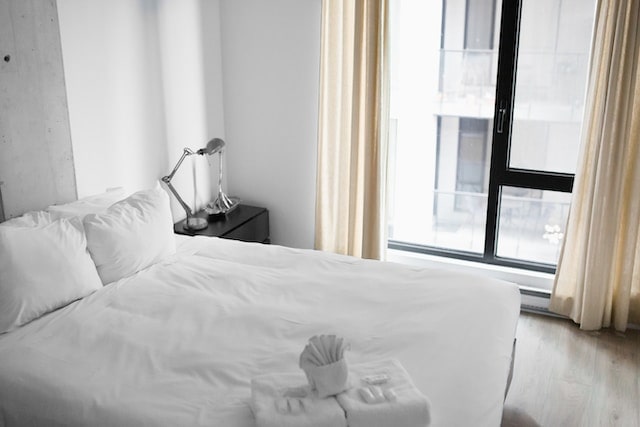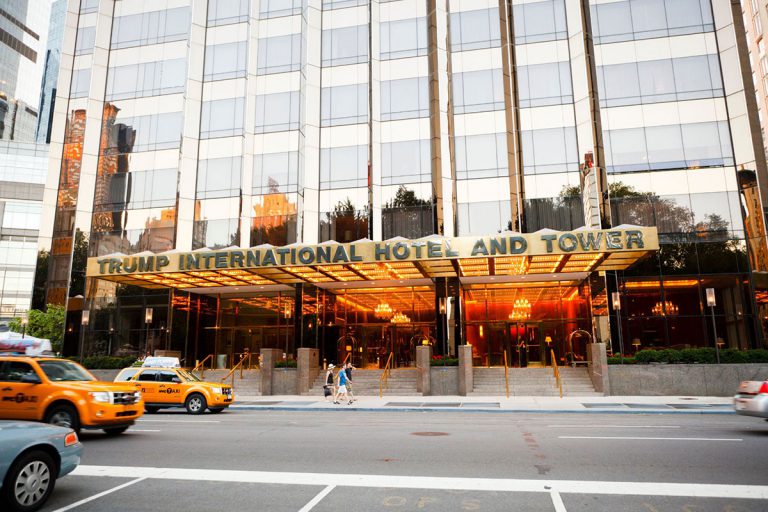Are you tired of the high costs of renting an apartment or house? Curious if living in a hotel could be a more affordable alternative?
If you’re short on time, here’s a quick answer to your question: Living in a hotel can sometimes be cheaper than renting, depending on various factors.
In this article, we will explore the pros and cons of living in a hotel compared to renting, the factors that can affect the cost, and provide you with a comprehensive analysis to help you make an informed decision.
From the flexibility of hotel living to the potential savings, we will cover all the essential aspects to consider before deciding whether to choose a hotel as your long-term accommodation option.
Pros of Living in a Hotel
Flexibility of Short-Term Commitments
One of the major advantages of living in a hotel is the flexibility it offers in terms of short-term commitments.
Unlike traditional rental agreements that often lock you into a lease for a year or more, hotels provide the option to stay for as little or as long as you need. This can be particularly beneficial for individuals who frequently travel for work, students attending short-term courses, or those in transition between homes.
Additionally, hotels usually have a straightforward booking process, allowing you to easily extend your stay or check out whenever you need to.
This flexibility can be a great convenience, especially if your plans change unexpectedly or if you’re unsure of how long you’ll need temporary accommodation.
According to Forbes, living in a hotel can also provide a sense of freedom and adventure, as you can explore different locations without being tied down to a specific property or area.
Access to Amenities and Services
Another perk of living in a hotel is the access to various amenities and services that are often included in the cost of your stay.
Most hotels offer amenities such as gyms, swimming pools, spa facilities, business centers, and concierge services. These amenities can greatly enhance your living experience and provide added convenience.
Having access to a fitness center, for example, means you can maintain your exercise routine without the need for an additional gym membership. Similarly, having a concierge available can make daily tasks, such as arranging transportation or finding local recommendations, much easier.
Furthermore, hotels typically provide housekeeping services, saving you time and effort in cleaning and maintaining your living space.
This can be particularly valuable for individuals with busy schedules or those who prefer to focus on other aspects of their life without having to worry about household chores.

Potential Cost Savings
Contrary to popular belief, living in a hotel can sometimes be more cost-effective than renting a traditional apartment or house, especially in certain situations. While it may seem counterintuitive considering the daily rates of hotels, there are a few factors to consider.
Firstly, hotels often offer discounted rates for long-term stays, making them more affordable when compared to monthly rent payments. Additionally, the cost of utilities and amenities, such as electricity, water, internet, and gym access, is usually included in the hotel rate. This means you can potentially save on these additional expenses that would typically be separate costs when renting a property.
Moreover, living in a hotel eliminates the need for a security deposit, which can be a significant upfront cost when renting an apartment. Additionally, hotels typically have lower or no application fees, saving you money during the move-in process.
It’s important to note that the cost comparison between living in a hotel and renting can vary depending on factors such as location, duration of stay, and individual preferences. Therefore, it’s recommended to thoroughly research and compare prices in your specific area to determine the most cost-effective option for your situation.
Cons of Living in a Hotel
Limited Personal Space
One of the downsides of living in a hotel is the limited personal space. Unlike renting an apartment or a house, hotel rooms are typically much smaller and may not offer the same amenities that you would find in a traditional living space. This can make it challenging to store personal belongings or create a comfortable living environment.

Lack of Privacy
Another disadvantage of living in a hotel is the lack of privacy. Hotel rooms are designed to accommodate short-term stays, and as such, they may not provide the same level of privacy as a rented apartment or house. You may have to deal with noise from other guests, housekeeping staff entering your room, and a constant flow of people in and out of the hotel.
Lack of Permanent Address
Living in a hotel means that you don’t have a permanent address. This can be problematic for several reasons. For instance, you may encounter challenges when it comes to receiving mail or packages, registering for services that require a physical address, or even establishing residency for legal or financial purposes.
It’s important to note that the cons of living in a hotel may vary depending on your specific situation and needs.
Some people may find these limitations to be manageable, especially if they are only planning on staying in a hotel for a short period of time. However, if you are looking for a long-term living arrangement, it’s worth considering these drawbacks before making a decision.
Factors Influencing Cost
When considering whether living in a hotel is cheaper than renting, there are several factors that come into play. These factors can greatly impact the overall cost and should be taken into account when making a decision.
Location
The location of the hotel plays a significant role in determining the cost. Hotels in prime locations, such as city centers or popular tourist destinations, tend to have higher rates compared to those in less desirable areas. It’s essential to consider the convenience and amenities offered by the location when comparing costs.
For instance, if you frequently travel to a specific city for work or leisure, renting a hotel room in that location might be a more cost-effective option. On the other hand, if you require a more permanent residence, renting an apartment or house in a less expensive area could be a better choice.

Length of Stay
The duration of your stay is another crucial factor to consider when comparing costs. Hotels often offer discounted rates for longer stays, making them more affordable than short-term rentals. If you’re planning to stay for an extended period, it’s worth exploring the options available and negotiating with the hotel for a more favorable rate.
However, if you’re only staying for a few nights or a week, renting a hotel room may be more expensive than renting an apartment or house. Short-term rentals often provide more cost-effective options for shorter stays, especially if you’re traveling with a group or require additional space.
Seasonality
The time of year can also impact the cost of living in a hotel compared to renting. During peak tourist seasons, such as summer or holidays, hotel rates tend to increase due to high demand. Conversely, off-peak seasons may offer lower rates and better deals.
It’s advisable to research the seasonal trends in your desired location and plan your stay accordingly. Consider the fluctuations in rates and availability when comparing the cost of living in a hotel versus renting an apartment or house.
Comparing Costs: Hotel vs. Renting
Renting Expenses
When considering the costs of renting, there are several factors to take into account.
First and foremost is the monthly rent itself. This can vary greatly depending on location, size, and amenities of the rental property. Additionally, there may be additional expenses such as utilities, internet, and parking fees. It is also important to consider any upfront costs, such as a security deposit or first month’s rent, that may be required.
Another aspect to consider is the potential for rent increases over time.
Landlords have the ability to raise rent prices, which can significantly impact the overall cost of renting. It is advisable to research the rental market in your area to get an idea of potential future rent increases.
Finally, it is important to factor in the cost of furnishing a rental property.
Unlike a hotel, where furniture and other amenities are provided, renting a home or apartment often requires purchasing furniture, appliances, and other household items. These upfront costs can add up quickly.
Hotel Living Expenses
Living in a hotel may seem like a luxurious option, but it is important to consider the associated expenses. While hotel rates can vary depending on location and season, they typically charge a higher nightly rate compared to monthly rent. Staying in a hotel long-term can quickly become expensive.
In addition to the nightly rate, hotels often charge additional fees for services such as parking, Wi-Fi, and room service. These fees can significantly increase the overall cost of living in a hotel.
Furthermore, unlike renting a property where utilities are typically included in the monthly rent, hotels often charge for utilities separately. This can include electricity, water, and heating/cooling costs. It is important to factor in these additional expenses when comparing the costs of hotel living versus renting.
It is worth noting that living in a hotel may have certain advantages, such as access to amenities like a gym, pool, or complimentary breakfast. However, it is important to carefully consider the costs and weigh them against the benefits.
Ultimately, whether living in a hotel is cheaper than renting depends on several factors including location, length of stay, and individual circumstances. It is recommended to thoroughly research and compare the costs of both options before making a decision.
Other Considerations
Insurance Coverage
When comparing living in a hotel to renting a traditional apartment, it’s important to consider insurance coverage. Most hotels provide some form of liability coverage as part of their services. However, this coverage may not extend to your personal belongings.
Renters insurance, on the other hand, typically covers both liability and personal property. It’s crucial to review the terms and conditions of your hotel stay and determine if additional insurance is necessary to protect your belongings. Websites like insurance.com can provide more information on different insurance options and help you make an informed decision.
Legal Implications
Living in a hotel may have legal implications that differ from renting an apartment. While renting an apartment usually involves signing a lease agreement, living in a hotel is typically based on a short-term occupancy agreement. This means that the rights and responsibilities of both the hotel and the guest may be different.
It’s important to understand the legal implications of living in a hotel, especially if you plan to stay for an extended period. Consulting with a legal professional or researching relevant laws in your area can provide valuable insights into your legal rights and obligations.
Personal Preferences
One important consideration that cannot be overlooked is personal preferences. Living in a hotel may offer certain conveniences, such as daily housekeeping, access to amenities like a gym or pool, and the freedom to change locations easily.
On the other hand, renting an apartment provides a sense of stability, the opportunity to personalize your living space, and potentially lower costs in the long run.
It’s essential to weigh your personal preferences and lifestyle factors when deciding between living in a hotel or renting an apartment. Ultimately, the choice will depend on what aligns best with your needs and priorities.

Conclusion
While living in a hotel can offer some potential cost savings and flexibility, it may not be the most suitable option for everyone. Consider your specific needs, lifestyle, and budget before making a decision.
Ultimately, whether living in a hotel is cheaper than renting depends on your individual circumstances and priorities.
We hope this comprehensive analysis has provided you with valuable insights to help you make an informed decision on your long-term accommodation.






